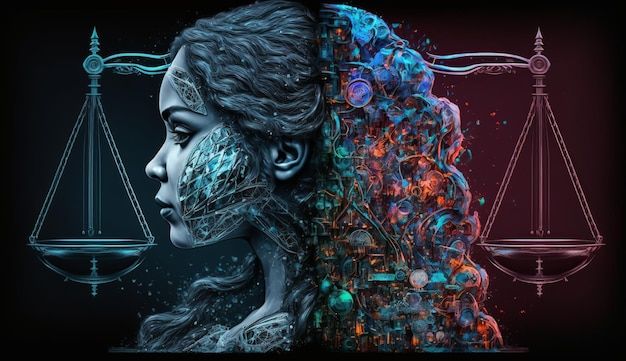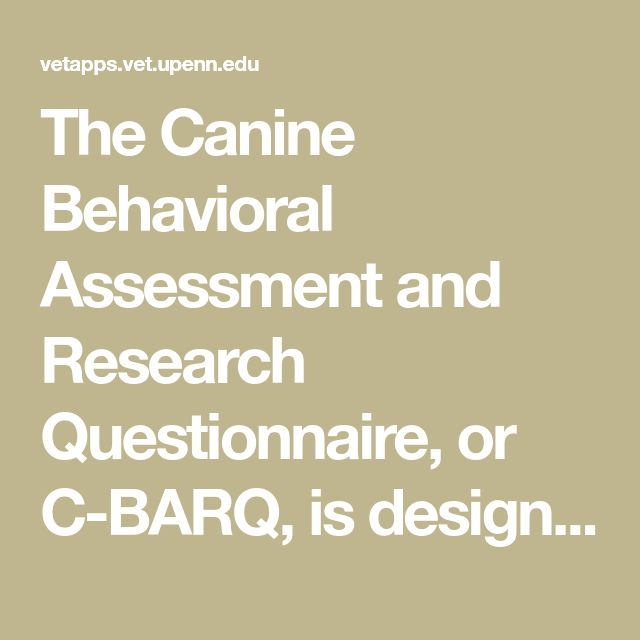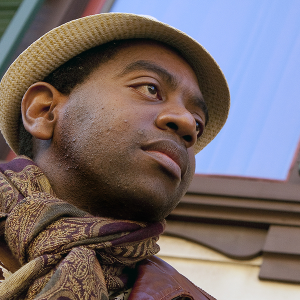AI and social justice are increasingly becoming critical topics as society grapples with the implications of technology on equity and fairness. Renowned sociologist Ruha Benjamin, during her Tanner Lectures, emphasized that while AI is often promoted as a transformative force for good, it can perpetuate existing inequalities if left unchecked. With tech entrepreneurs envisioning a future driven by AI ethics, we must scrutinize who truly benefits from these innovations. Benjamin warns that the narratives surrounding technology often overshadow the importance of inclusivity and justice in its development; it becomes essential to discuss social justice in technology as a means of ensuring that all voices, especially marginalized ones, are heard and integrated into these crucial conversations. As we navigate the future of technology, it is imperative to challenge conventional wisdom and advocate for a reality where equity prevails.
The intersection of artificial intelligence and social equity opens the door to critical dialogues about justice in our technological age. With the increasing prevalence of algorithm-driven solutions in society, discussions around fairness and ethical responsibility have never been more vital. Visionaries like Ruha Benjamin highlight the need for a critical examination of how technology shapes our lives, especially regarding marginalized communities. Through the lens of social equity, it is pivotal to explore alternative approaches that prioritize comprehensive well-being over mere technological advancement. As we stand on the brink of a new era shaped by innovations in AI, fostering creativity and inclusive engagement will be essential in redefining our societal landscape.
Envisioning a New Future: The Role of AI in Society
Ruha Benjamin’s vision for the future of technology challenges us to rethink what AI can and should accomplish in society. Rather than accepting the status quo perpetuated by tech elites, she urges us to imagine a future where artificial intelligence is utilized not merely for profit, but for the genuine advancement of societal well-being. This includes fostering creativity, equity, and inclusiveness as core values in AI development. By prioritizing social justice in technology, we can work towards a future where AI serves all members of society, especially marginalized communities that often bear the brunt of technological failures.
In her Tanner Lectures, Benjamin critically examines how the narratives crafted by tech billionaires regarding AI often obscure the reality of its implications. The promise of advanced algorithms and automated processes is frequently framed as benevolent; however, Benjamin highlights how such claims can mask exploitative practices. By re-envisioning AI within a framework of social justice, the goal would be to ensure that these technologies are built with a commitment to inclusivity and care, rather than merely reinforcing existing hierarchies.
The Ethics of Technology: A Call to Action
Benjamin argues that AI ethics must encompass a broader understanding of the social context in which these technologies operate. The idea that algorithms are neutral or objective because they rely on mathematical computations is fundamentally flawed, according to Benjamin. As recent history shows, tools like facial recognition technology and automated decision-making systems can reproduce and exacerbate social injustices, such as racial bias and inequality in healthcare access. Therefore, it is imperative that discussions surrounding AI ethics actively include voices from diverse backgrounds, particularly those historically excluded from tech innovation.
To develop ethical frameworks that resonate with the lived experiences of all community members, Benjamin encourages interdisciplinary collaboration. Social scientists, artists, ethicists, and technologists must come together to create solutions that resist the temptation to center technical know-how at the expense of human values. This collective approach can help challenge the prevailing narratives that often prioritize efficiency over empathy, encouraging us to think deeply about what kinds of futures technology should enable and who ultimately benefits from them.
Breaking Down Barriers: The Intersection of Creativity and Technology
In her compelling arguments, Benjamin calls for a re-evaluation of the conventional narratives surrounding technological advancement. She references the need to dismantle mental barriers that inhibit creative thinking about technology’s future applications. By framing the discussion around the humanities and arts, she suggests that these fields can offer crucial insights and alternative approaches, allowing for a more imaginative and socially responsible conception of technology. The challenge, then, is to facilitate dialogue that merges technical expertise with creative thought, ensuring that we do not simply accept harmful systems but aspire to reimagine truly equitable solutions.
Benjamin’s emphasis on creativity is not merely about artistic expression; it is about acknowledging the value of different perspectives while envisioning the future of technology. This means not just asking how to make existing systems less harmful but questioning the very foundations upon which these systems are built. By fostering an environment where innovative ideas are embraced and where the insights of artists and thinkers are integrated into the narrative of technology, we can cultivate solutions that genuinely reflect the needs and aspirations of all members of society.
AI and Social Justice: Bridging the Gap
The intersection of AI and social justice is paramount in Benjamin’s discourse. She identifies a critical gap between the technocratic elite’s ambitions and the lived realities of marginalized populations. This disparity raises urgent questions about accountability, representation, and the ethical obligations of technology developers. Benjamin argues that we must scrutinize who designs and deploys AI technologies and how their applications may inadvertently perpetuate oppression rather than promoting human flourishing. By advocating for a stronger alignment between technology and social justice principles, she calls on stakeholders to prioritize inclusivity.
To effectively bridge the gap between AI development and social justice, it is essential to involve communities affected by technology in the decision-making processes. Benjamin emphasizes the vital role of participatory design where those impacted by technological advancements can express their needs, concerns, and visions. Only by integrating diverse voices into the conversation can we ensure that AI systems are conceived with the goal of advancing equity, inclusivity, and justice. This equitable approach not only provides a moral compass for the development of AI but also paves the way for a future where technology uplifts all, rather than leaving behind the most vulnerable.
The Importance of Interdisciplinary Collaboration in Technology
Benjamin’s call for interdisciplinary collaboration underscores the need for diverse expertise in shaping the future of technology. This collaborative approach is foundational to addressing the multifaceted challenges presented by AI. By bringing together sociologists, technologists, ethicists, and artists, we can create a holistic understanding of how technology interacts with society. Interdisciplinary teams can facilitate creative brainstorming sessions that challenge conventional mindsets about technology’s capabilities and limitations, leading to breakthroughs grounded in ethical considerations and societal needs.
Moreover, this collaborative effort is necessary not only for innovation’s sake but also for accountability. Inclusive partnerships make it easier to challenge harmful narratives and promote solutions that prioritize public good. Benjamin’s vision encourages universities and institutions to rethink how they approach technology education, advocating for curricula that blend technical training with a deep understanding of social theory and creative inquiry. Such educational transformations are essential for nurturing a generation of thinkers who can responsibly harness the power of AI and advocate for a more just society.
Rethinking Education: Fostering Creativity in Technology Development
To facilitate the transition toward a more equitable and imaginative technological landscape, Benjamin highlights the critical role of education. She advocates for a pedagogical shift that places a premium on creative inquiry, emphasizing the need for universities to prioritize arts and humanities alongside traditional STEM curricula. By fostering creativity in education, students become empowered to envision alternative futures and challenge prevailing narratives that often equate technical skill with innovation. This enriched educational framework encourages emerging leaders to think critically about the moral implications of the technologies they develop.
Furthermore, Benjamin’s argument extends beyond the classroom. She encourages institutions to support partnerships between educational entities and community organizations, facilitating the exchange of knowledge and creation of socially relevant projects. This approach not only enriches the learning experience but also ensures that technology developed is attuned to the needs and aspirations of diverse populations. Through this commitment to inclusive education, we can cultivate a generation that not only understands the technical dimensions of AI but is also deeply invested in the ethical ramifications and opportunities for social justice.
Confronting the Inequities of AI: A Path Towards Social Justice
In her lectures, Ruha Benjamin confronts the pervasive inequities that have been embedded in AI systems and the technologies that govern our lives. She argues that the hyped promises of AI’s objectivity often obscure the biases inherent in their algorithms, leading to outcomes that disproportionately affect marginalized communities. This reality underscores the need for a collective movement demanding accountability from tech companies and advocating for rigorous ethical standards in AI development. By shedding light on these injustices, Benjamin implores society to envision a future where technology is not just a tool for profit but a means of uplifting all individuals.
The pursuit of social justice in AI requires ongoing education and advocacy, ensuring that diverse perspectives are represented in conversations about technology. Benjamin emphasizes the importance of grassroots movements in pushing back against harmful practices and calling attention to the human impact of AI. Collaboration between technologists and activists can be particularly powerful in crafting solutions that emphasize fairness and equity. In this way, the conversation surrounding AI can shift from one of apprehension to one of hopeful transformation, where technology serves the common good.
Imagining Beyond the Current Technological Paradigm
Benjamin challenges us to imagine future technologies that transcend the limitations of our current paradigms. She posits that rather than simply striving to refine existing systems, we should dare to envision systems that dismantle the structures contributing to inequality and oppression. This requires a radical shift in our approach to technology, where the focus is not just on efficiency or innovation for its own sake, but on building a society grounded in inclusivity and justice. Benjamin argues that we must cultivate a willingness to question the very foundations of existing systems, inviting creative solutions that reflect the diverse needs of humanity.
To achieve this ambitious vision, it is crucial to engage communities and broaden the collective imagination regarding technology. By inviting a range of perspectives into the conversation, we can enhance our understanding of technology’s potentialities and reconfigure our relationship with it. Benjamin’s call to reimagine technology in a manner that champions human dignity represents not just a challenge but also an opportunity—a pathway toward a future where AI and other technologies enrich lives and empower communities rather than reinforce existing inequalities.
Strengthening the Foundations of Ethical Technology Design
As Benjamin underscores, ethical technology design must prioritize a human-centered approach, particularly in the realm of AI. This approach necessitates a careful examination of the values that drive technological development. It is insufficient for developers to rely solely on technical skills; they must also engage in rigorous discussions around the social impacts of their work. This includes assessing the power dynamics at play within technology ecosystems and actively striving to create systems that support justice and equity. Only through a comprehensive understanding of both technical and ethical frameworks can we build technologies that align with our shared values.
In pursuit of this goal, Benjamin emphasizes the importance of fostering a culture of continuous dialogue and reflection within tech communities. Workshops, conferences, and collaborative projects centered around ethical technology design can help reinforce these values among developers. By cultivating environments where ethical considerations are paramount in every stage of design and implementation, we can begin to shift the tide toward a future where technology is a force for good, advancing civil rights and opportunities for all.
Frequently Asked Questions
What is the relationship between AI and social justice?
AI and social justice intersect significantly, as the deployment of AI technologies can disproportionately affect marginalized communities. Ruha Benjamin emphasizes that while AI is often marketed as a progressive solution, it can lead to increased oppression and exacerbate existing inequalities. Ensuring AI development aligns with social justice principles is crucial for equitable outcomes.
How does Ruha Benjamin view the future of technology concerning social justice?
Ruha Benjamin advocates for a future where technology serves the collective good rather than the interests of tech elites. Her argument underscores the need for inclusive discussions around AI and social justice, challenging the notion that AI is inherently neutral or beneficial when it often perpetuates harm against vulnerable populations.
What are some ethical concerns surrounding AI in relation to social justice?
AI ethics highlight several concerns, particularly its role in reinforcing systemic biases. Ruha Benjamin points to examples like facial recognition software leading to wrongful arrests and biased algorithmic decision-making in healthcare. These issues raise pressing questions about fairness, accountability, and the societal implications of AI systems, calling for a critical examination within the realm of social justice.
Why does Ruha Benjamin criticize the current AI development narrative?
Benjamin criticizes the narrative that frames AI development as inherently altruistic and progressive. She argues it often masks self-interested motives of tech leaders and ignores the historical context of oppression in technology. Benjamin believes that a truly just technological future should involve diverse voices and a commitment to addressing societal needs rather than prioritizing profit and efficiency.
What role do arts and humanities play in discussing AI and social justice?
Ruha Benjamin calls for a renewed focus on creativity and the arts in discussions about AI and social justice. She advocates for inquiry that extends beyond technical expertise, emphasizing the importance of understanding societal implications and imagining transformative futures. By integrating arts and humanities, we can foster critical thought and innovative solutions to the challenges posed by AI.
How can we reimagine AI systems to promote social justice?
Reimagining AI systems for social justice involves challenging the current frameworks that prioritize efficiency over equity. Ruha Benjamin encourages us to envision alternatives that prioritize public goods such as affordable housing and equitable transportation. By dismantling mental barriers and thinking creatively, we can develop AI technologies that truly serve the needs of all communities.
What does Ruha Benjamin mean by ‘computational depth without social and historical depth’?
This phrase highlights the flaw in designing AI systems that lack an understanding of societal complexities. Ruha Benjamin argues that while AI may employ deep learning techniques for data analysis, it fails to account for the historical injustices faced by marginalized groups. True depth in AI requires a holistic view that incorporates social contexts and ethical considerations, rather than solely technical capabilities.
| Key Concepts | Details |
|---|---|
| Radical Future | Ruha Benjamin encourages envisioning non-dystopian futures rather than conforming to tech elites’ bleak narratives. |
| Critique of Tech Elites | Benjamin argues that tech leaders often misrepresent AI as benevolent while pursuing self-interest. |
| Consequences of AI | AI technologies can perpetuate oppression, citing issues with facial recognition and automated healthcare decisions. |
| Math vs. Emotion | AI’s reliance on algorithms can harm marginalized groups, paralleling historical injustices like eugenics. |
| Necessity of Diverse Knowledge | Benjamin emphasizes the need for a variety of perspectives in technology creation, including social and historical insights. |
| Call for Creativity | She urges a shift towards imaginative thinking and a focus on arts and humanities in universities to inspire innovation. |
| Reimagining Systems | Instead of marginal improvements to harmful systems, seek to envision solutions that dismantle oppressive structures. |
Summary
AI and social justice intersect critically as we explore the responsibility of technology creators. Ruha Benjamin’s argument highlights the importance of not only critiquing existing AI applications that reinforce inequality but actively reimagining societal structures to promote justice and equity. By prioritizing creativity and a broad spectrum of knowledge in technology development, we can aspire to build a future that transcends dystopian fears, ensuring that advances in AI serve the collective good rather than the interests of a privileged few.









